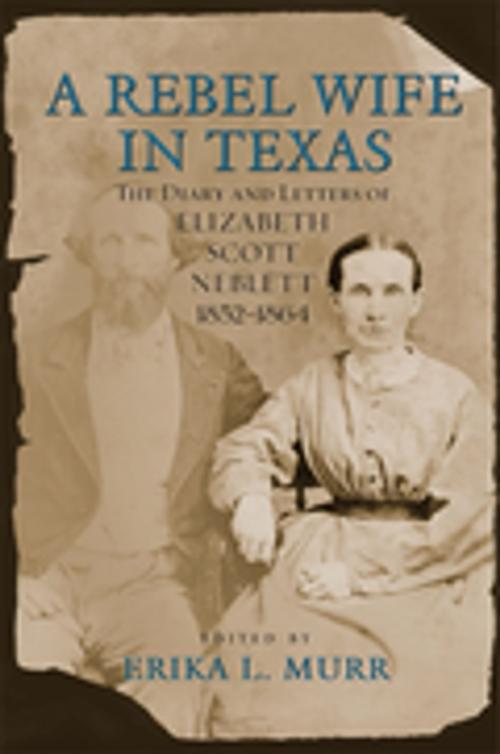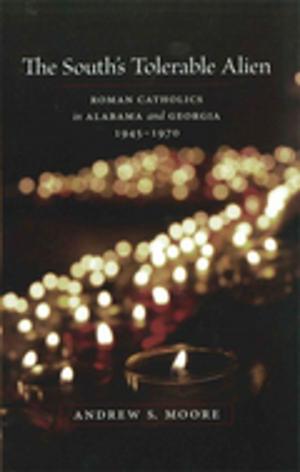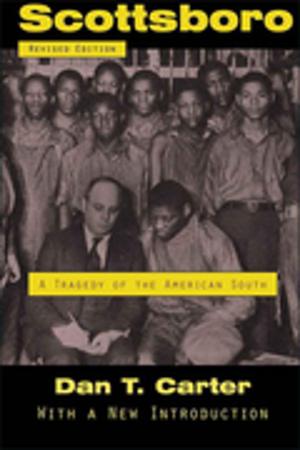A Rebel Wife in Texas
The Diary and Letters of Elizabeth Scott Neblett, 1852--1864
Nonfiction, History, Americas, United States, Civil War Period (1850-1877)| Author: | ISBN: | 9780807166468 | |
| Publisher: | LSU Press | Publication: | September 1, 2001 |
| Imprint: | LSU Press | Language: | English |
| Author: | |
| ISBN: | 9780807166468 |
| Publisher: | LSU Press |
| Publication: | September 1, 2001 |
| Imprint: | LSU Press |
| Language: | English |
A Rebel Wife in Texas offers a singular glimpse into nineteenth-century southern culture through the eyes of a captivating and complex woman who, as a product of that culture, both revered and reviled it.
Elizabeth Scott Neblett was raised in a slaveholding family in eastern Texas. Despite the frontier conditions, she was very much a southern belle who embraced conventional dictates and aspired to the “cult of true womanhood.” Neblett entered romantic marriage and motherhood with optimism, but over time her experiences as a wife and mother made her severe and increasingly despondent. When the Civil War ripped away the existing social structure and took her husband away from home, she was pressed to assume many of his responsibilities, including managing the family property and its eleven slaves. Frustrated by a growing sense of powerlessness and inadequacy, she frequently railed in anger against herself, her husband, and her children.
Skillfully edited and annotated, A Rebel Wife in Texas is a rich resource for anyone researching the nineteenth-century South, not least for its observations on slave and class relations, regional politics, lynching, farm management, medical practices, mental illness, and the Civil War in Texas. It also offers an uncommonly intimate perspective on marriage during that era. The frankness, desperation, and detail with which Neblett discusses birth control and child rearing make this a unique collection of letters.
Elizabeth Scott Neblett’s autobiographical record is the fascinating tale of one woman’s life—a life both ordinary and extraordinary. It is also, in important ways, the wider story of a culture rent by turmoil from within and without.
A Rebel Wife in Texas offers a singular glimpse into nineteenth-century southern culture through the eyes of a captivating and complex woman who, as a product of that culture, both revered and reviled it.
Elizabeth Scott Neblett was raised in a slaveholding family in eastern Texas. Despite the frontier conditions, she was very much a southern belle who embraced conventional dictates and aspired to the “cult of true womanhood.” Neblett entered romantic marriage and motherhood with optimism, but over time her experiences as a wife and mother made her severe and increasingly despondent. When the Civil War ripped away the existing social structure and took her husband away from home, she was pressed to assume many of his responsibilities, including managing the family property and its eleven slaves. Frustrated by a growing sense of powerlessness and inadequacy, she frequently railed in anger against herself, her husband, and her children.
Skillfully edited and annotated, A Rebel Wife in Texas is a rich resource for anyone researching the nineteenth-century South, not least for its observations on slave and class relations, regional politics, lynching, farm management, medical practices, mental illness, and the Civil War in Texas. It also offers an uncommonly intimate perspective on marriage during that era. The frankness, desperation, and detail with which Neblett discusses birth control and child rearing make this a unique collection of letters.
Elizabeth Scott Neblett’s autobiographical record is the fascinating tale of one woman’s life—a life both ordinary and extraordinary. It is also, in important ways, the wider story of a culture rent by turmoil from within and without.















